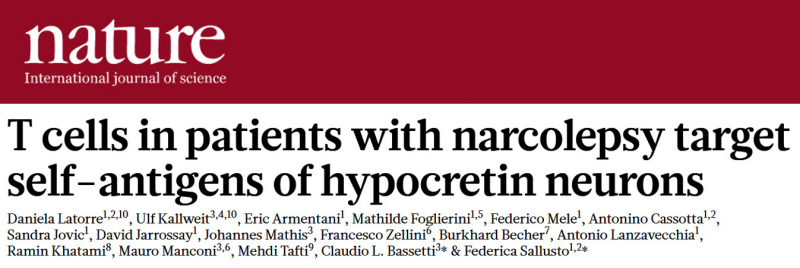Patients with the rare disease narcolepsy with cataplexy suffer from excessive daytime
sleepiness and brief episodes of loss of muscle tone triggered by emotions (= cataplexy). The disease depends on genetic and environmental factors and is caused by the loss of specific neurons in the brain that produce a neurotransmitter called hypocretin. The underlying mechanisms of this neuronal loss remained mysterious for a long time. For the first time, this newly published study reports the existence of autoreactive T lymphocytes (cells of the immune system) in patients with narcolepsy. These T lymphocytes recognize hypocretin and can mediate an immune response leading to loss of hypocretin-producing neurons. This study identifies the culprit of this enigmatic disease and has major implications for its diagnosis and therapy.
The study is the result of a close collaboration between basic and clinical scientists and was jointly coordinated by Prof. Federica Sallusto at the Institute for Research in Biomedicine in Bellinzona
(IRB, affiliated to USI Università della Svizzera italiana) and at ETH Zurich, and Prof. Claudio Bassetti at the University Sleep-Wake-Epilepsy-Center Bern of the Bern University Hospital (Inselspital).
Click here to access the study.

